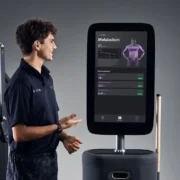Mental Health Goes Mainstream in the Age of Wellness
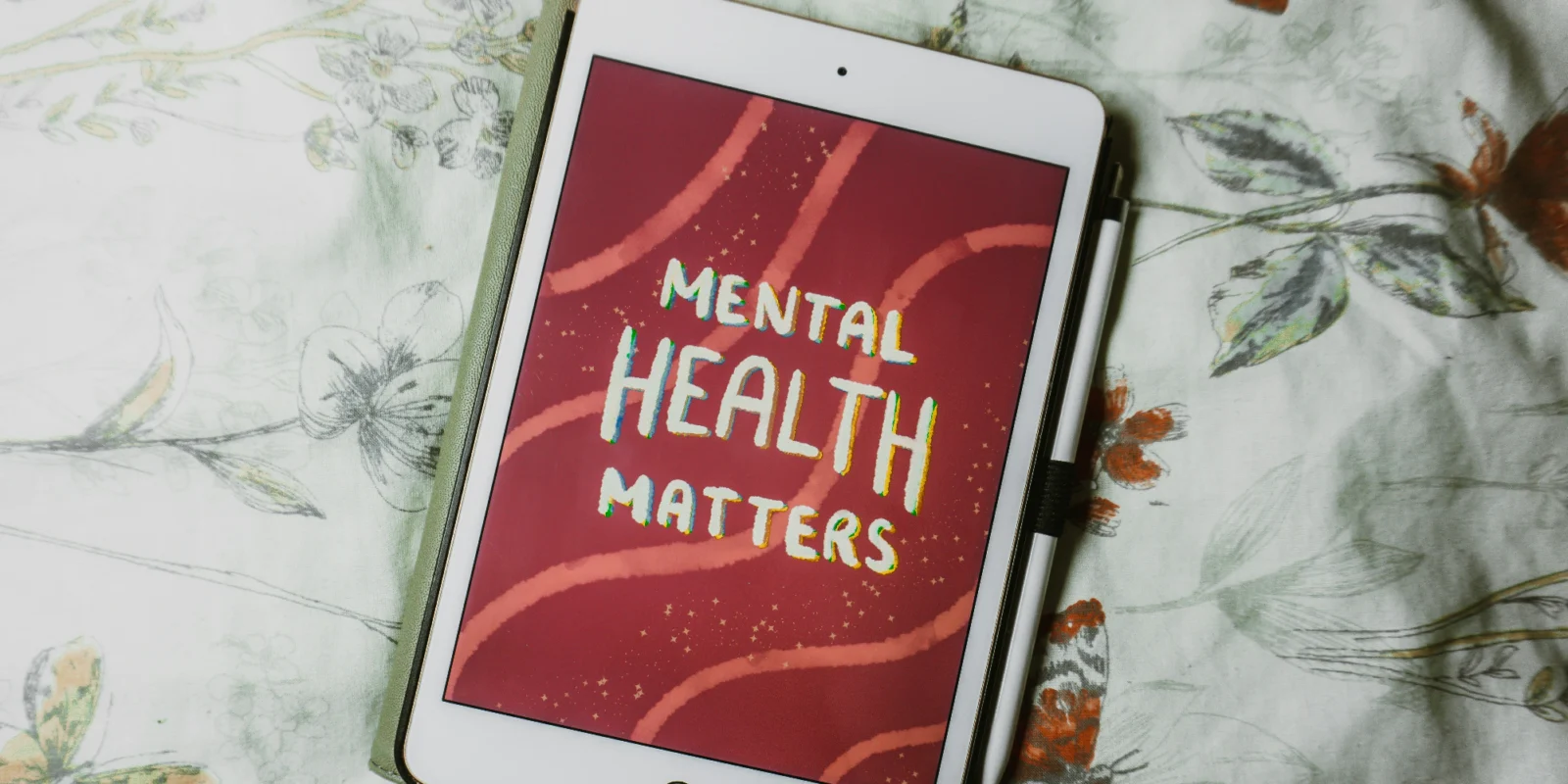
From wellness spas, stress-relief music, neurofeedback wearables and smart home devices, non-invasive mental health treatments offer new options for consumers
The phrase “mental health is health” has become prevalent in the post-pandemic era. While talk therapy platforms may have transformed greater accessibility to seeking treatment, emerging in-person experiences and advanced technology are making it easier than ever to tune into the mind.
According to the Centers for Disease Control (CDC), mental illnesses are one of the most common health conditions in the U.S., with more than one in five adults living with a mental illness. Certain mental health conditions can also negatively impact physical health — such as depression increasing the risk for diabetes, heart disease and stroke.
Luckily, public figures have contributed to the destigmatization of mental health by sharing their personal struggles or becoming the face of mental wellness platforms, as seen with Olympians Simone Biles, Michael Phelps, singer Selena Gomez and rapper Megan Thee Stallion.
The topic of mental health has also evolved from a rarely-discussed subject to a leading corporate wellness offering, with platforms like Wellhub providing employees with access to mental well-being apps. Fitness brands, such as CorePower Yoga, have also brought attention to mental health.
The growing wellness landscape has become an ideal fit for mental health services and products that take a holistic, non-invasive approach — and the possibilities appear endless.
Centers for Healing
California-based Neuro Wellness Spa, a mental health clinic with a spa-like atmosphere, has just opened its tenth location in the Los Angeles area.
The clinic’s co-founder, Dr. Martha Koo, says Neuro Wellness Spa is more than a medical clinic but a sanctuary for patients seeking advanced, personalized and non-invasive mental health treatments.
The clinic offers Transcranial Magnetic Stimulation Therapy (TMS), a non-drug and FDA-cleared neuromodulation treatment that uses gentle magnetic pulses for those suffering from depression, anxiety and OCD, psychiatric assessments and tailored treatment plans, talk-based therapy and medication management. There’s also an emphasis on creating a tranquil setting with aromatherapy and calming spaces.
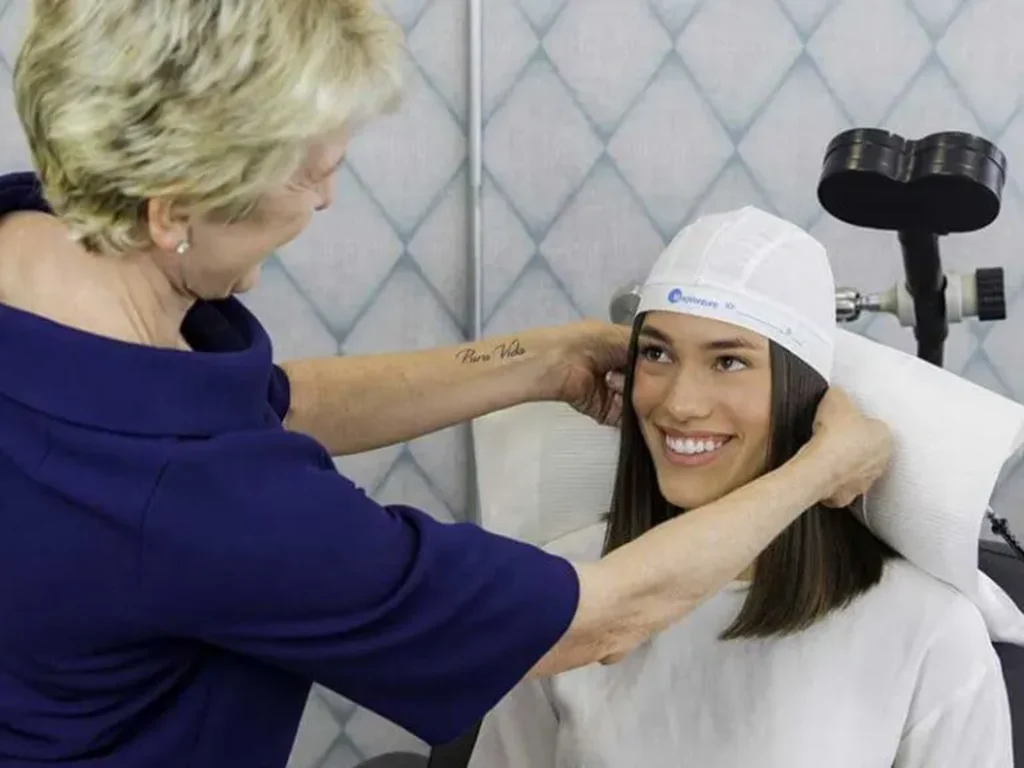
“Our goal is to provide a comprehensive approach to psychiatry that combines the latest evidence-based advancements with a focus on holistic wellness and individualized care,” Dr. Koo said.
While Neuro Wellness Spa caters to a wide demographic, others are targeting high earners. Highlands Recovery opened this year in Australia as a luxury program for CEOs, celebrities, athletes and politicians to receive treatment in a private setting.
“As incredible as this may seem, this is an under-serviced area of the market,” Highlands Recovery’s clinical director, Resh Joseph, told Athletech News. “Some of (the) needs of high-net-worth individuals are quite different from other areas of society, and some of those needs can be a real challenge for an organization to meet. What we have done at Highlands Recovery is to create an organization that is supple and expansive enough to wrap around the unique set of needs that such individuals have.”
Canyon Ranch, which just debuted a new $20,000 longevity-focused stay at its Tucson resort, has integrated mental health into its four-day program, which includes a private mind-body practice and sessions with mental health, wellness and spiritual therapists.
Sounds like Healing
In addition to in-person mental health treatment, wellness music has emerged as a new way to encourage mental well-being.
Sensate, a personal wellness tech startup centered on stress regulation, partnered this month with Frank Fitzpatrick, Apple’s former music and health specialist and a Grammy-nominated producer, to unveil music that enhances well-being. The collaboration will bring two calming tracks released exclusively on Sensate’s app before joining Spotify.
“Our collaboration with Frank Fitzpatrick exemplifies our mission to offer our users unparalleled wellness experiences through innovative music and technology,” Sensate CEO Anna Gudmundson said. The startup has raised $3 million since its launch and includes venture capital investors TenOneTen and Unlock.
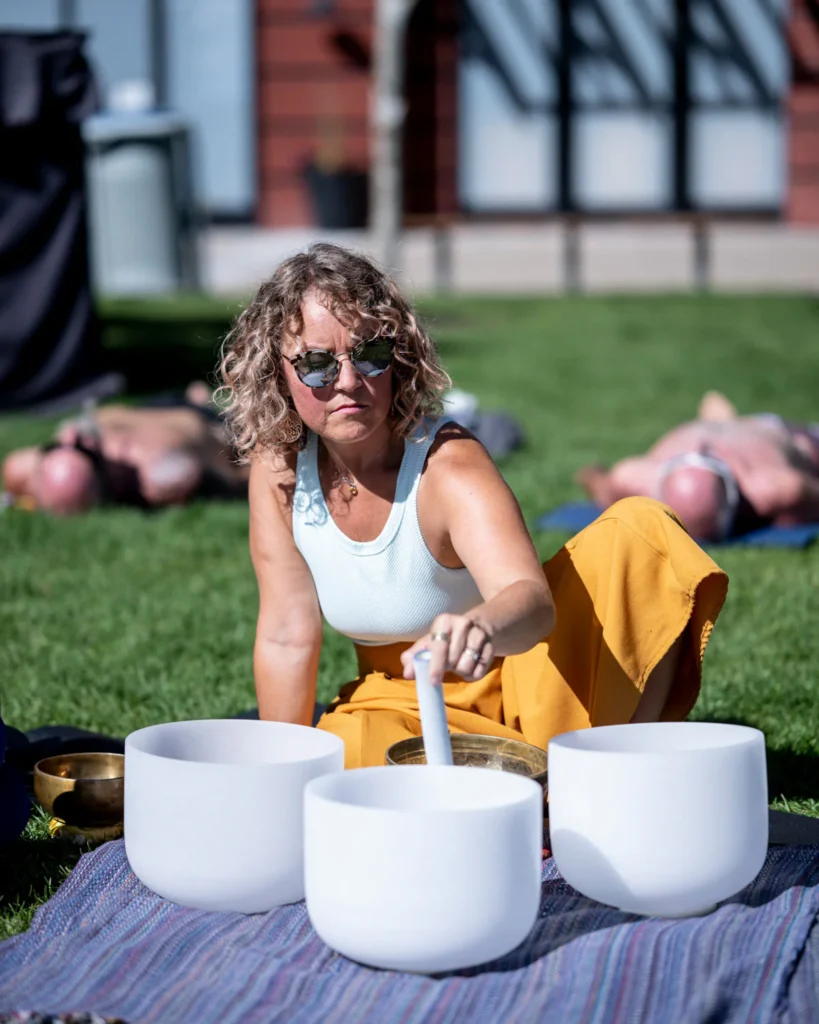
Using music as a bridge to discuss mental health is also the foundation of Park City Song Summit, a Utah music festival that headlines wellness and recovery. The event offers concertgoers “recovery hangs,” meditation, yoga sessions, biking, guided hikes and other wellness activities.
“We’re contributing to a new way of looking at artists, at our audience, [and] embracing de-stigmatization of mental health,” Park City Song Summit founder Ben Anderson told Rolling Stone.
Wearables for Mental Health
Wearable tech is no longer reserved for fitness trackers and CGM monitors, but also mental health and improved performance.
Alphabeats, makers of a neurotech wearable with two former Spotify executives on board, have created an EEG headband that helps people easily enter a flow state. While beneficial for creativity, recovery and focus, the mind training technology also improves reaction time and motor coordination, making it ideal for athletes. This month, the startup launched a mental fitness initiative with USA Triathlon’s Project Podium to help train top athletes with its neurofeedback technology over a three-month period.
“Mental resilience is a crucial component of triathlon success, especially at the elite level,” Project Podium head coach Parker Spencer said. “We look forward to seeing how our athletes can benefit from Alphabeats’ technology in areas like focus, recovery and overall mental preparation.”
Another wearable, Apollo, promises to calm the mind, improve sleep, reduce stress and boost productivity and mood by using calming vibrations that align with the nervous system. The device also employs a proprietary AI platform that analyzes health data such as sleep quality, stress levels, HRV and heart rate to create a personalized stress-relief plan for users.
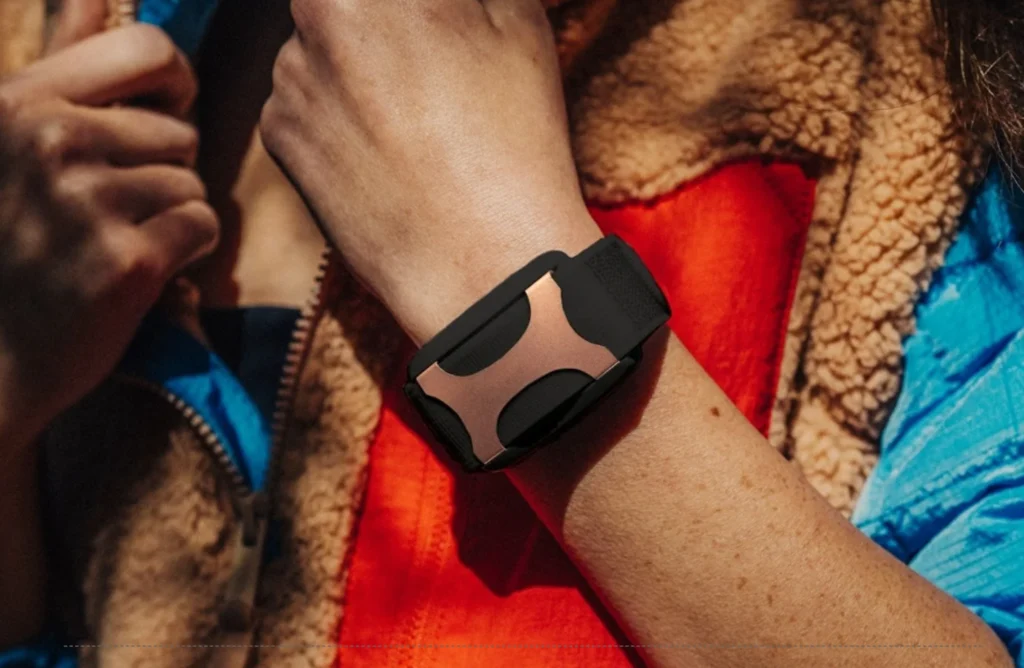
Created by neuroscientists and physicians, the wearable wellness tech company recently announced a business division for pro and college sports teams, healthcare organizations, the military and more.
“While wearables have been available through managed healthcare plans for organizations, the data alone doesn’t improve health outcomes,” Apollo Neuroscience CEO and co-founder Kathryn Fantauzzi said. “With our Apollo for Business program, we’re able to provide a mental health and wellness tool that proactively improves sleep and lowers stress, helping teams feel more rested and focused.”
Smart Home Devices, Improved Mental Health
Mental health devices could also soon become part of home decor. Earlier this year, health tech company Baracoda introduced BMind, an AI-powered smart mirror that identifies mood and provides exercise and activity recommendations for those who gaze into the device.
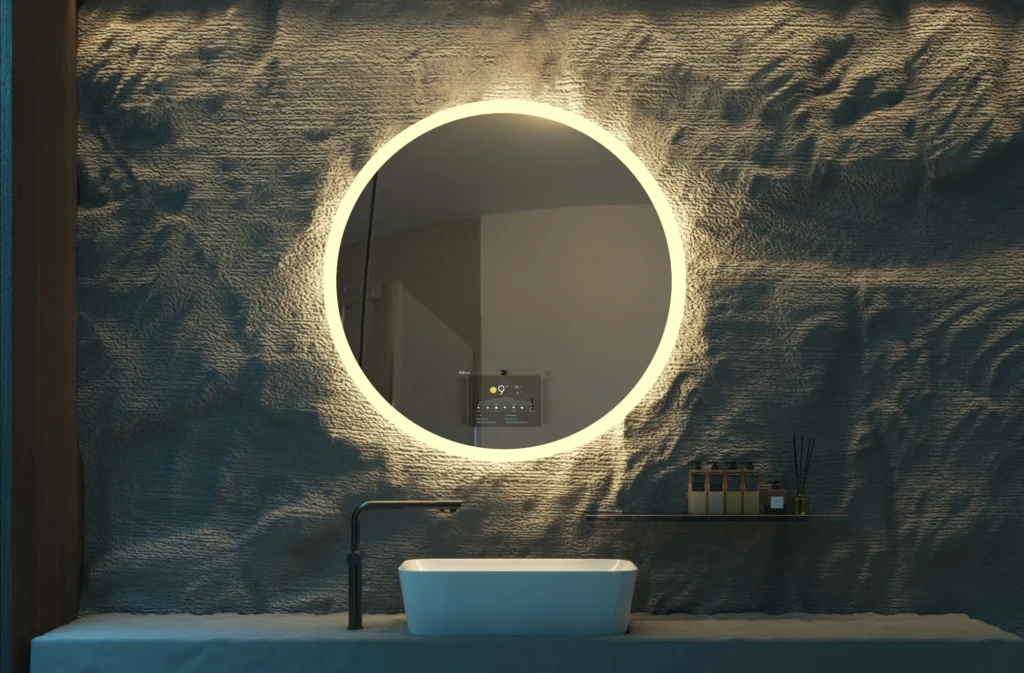
The mirror uses AI and language processing to analyze facial expressions and voice tones before adapting to an individual’s needs with light therapy, self-affirmations and guided meditations.
“Technology that can monitor for subtle changes in health has the potential of improving the quality of millions of lives,” Baracoda CEO Thomas Serval said. “Our mental state exerts a strong effect on our sense of physical well-being. Including mood in our daily wellness check-ins creates a fuller picture that represents a powerful step toward redefining preventative health.”


